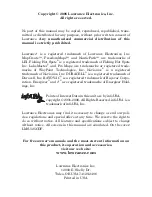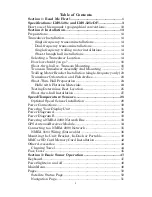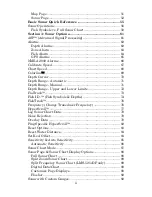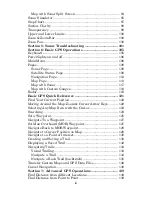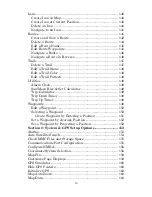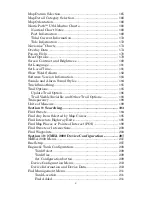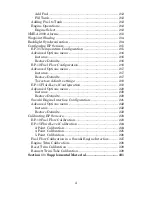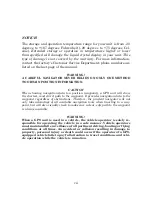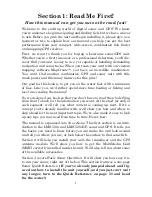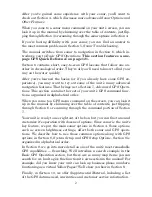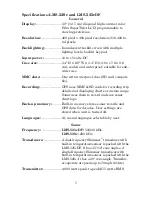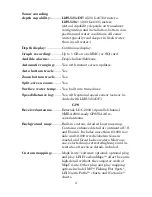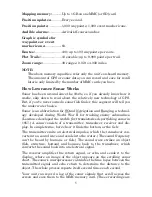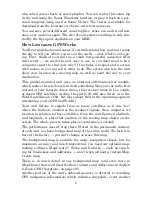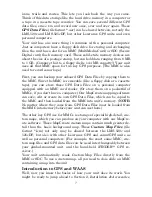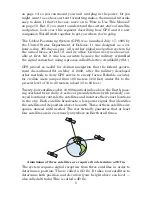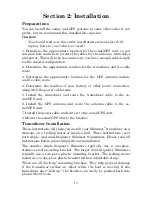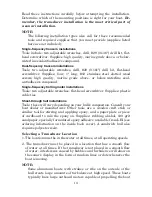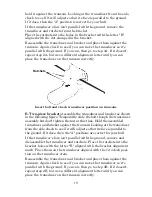
5
Mapping memory:
...........Up to 1 GB on one MMC (or SD) card.
Position updates:
...........Every second.
Position points:
..............1,000 waypoints; 1,000 event marker icons.
Audible alarms:
..............Arrival/off-course/anchor.
Graphic symbols for
waypoints or event
marker icons:
..................63.
Routes:
.............................100; up to 100 waypoints per route.
Plot Trails:
.......................10 savable; up to 9,999 points per trail.
Zoom range:
....................39 ranges; 0.02 to 4,000 miles.
NOTE:
The above memory capacities refer only the unit’s on-board memory.
The amount of GPS or sonar data you can record and save for recall
later is only limited by the number of MMC cards you have.
How Lowrance Sonar Works
Sonar has been around since the 1940s, so if you already know how it
works, skip down to read about the relatively new technology of GPS.
But, if you've never owned a sonar fish finder, this segment will tell you
the under water basics.
Sonar is an abbreviation for SOund NAvigation and Ranging, a technol-
ogy developed during World War II for tracking enemy submarines.
(Lowrance developed the world's
first
transistorized
sportfishing
sonar in
1957.) A sonar consists of a transmitter, transducer, receiver and dis-
play. In simple terms, here's how it finds the bottom, or the fish:
The transmitter emits an electrical impulse, which the transducer con-
verts into a sound wave and sends into the water. (The sound frequency
can't be heard by humans or fish.) The sound wave strikes an object
(fish, structure, bottom) and bounces back to the transducer, which
converts the sound back into an electrical signal.
The receiver amplifies this return signal, or echo, and sends it to the
display, where an image of the object appears on the scrolling sonar
chart. The sonar's microprocessor calculates the time lapse between the
transmitted signal and echo return to determine the distance to the
object. The whole process repeats itself several times each second.
Your unit can record a log of the sonar signals that scroll across the
screen and save them to the MMC memory card. (These recordings are
Summary of Contents for LMS-520C
Page 10: ...viii Notes ...
Page 22: ...12 Notes ...
Page 56: ...46 Notes ...
Page 114: ...104 Notes ...
Page 202: ...192 Notes ...
Page 216: ...206 Notes ...
Page 246: ...236 Notes ...


